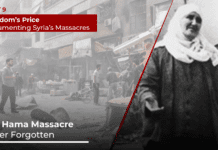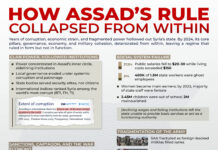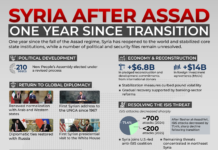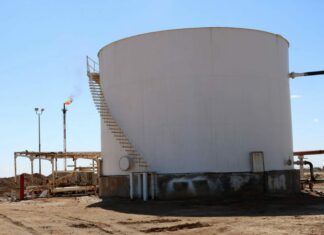
The Arab Contact Committee (ACC) on Syria convened its second meeting in Cairo earlier this month, marking a long-awaited follow-up to the committee’s first gathering over a year ago. Despite the anticipation, the meeting, which included foreign ministers from Egypt, Iraq, Saudi Arabia, Jordan, Lebanon, and Syria, yielded little in terms of new developments. This mirrors the pattern set in the previous meeting in August, where substantive progress on key issues related to Syria’s crisis remained elusive.
The meeting occurred on the sidelines of the Arab League’s Ministerial Council meetings and concluded with the formation of a team of experts tasked with studying ongoing issues in Syria. However, the committee did not release a final statement, highlighting the stagnation in diplomatic efforts to resolve the Syrian conflict. The committee agreed to meet again in Baghdad, though no specific date was set.
The ACC, initially formed at the 2023 Jeddah Summit, struggles to find a “comprehensive solution to the Syrian crisis.” Assad’s Foreign Minister Faisal Mekdad (now vice president of the regime) underscored the importance of Arab “brothers” helping Syria with “reconstruction and the restoration of international support.” However, he avoided direct reference to the Arab demands Assad is expected to meet, including addressing the refugee crisis, curbing drug smuggling, and resuming the work of the Constitutional Committee.
In a June statement, the Gulf Cooperation Council urged the Assad regime to implement agreements from meetings in Amman and Cairo, but progress on these fronts has stalled. While Arab nations such as Saudi Arabia have supported a political solution to the Syrian crisis, issues like drug smuggling from Syria into the Gulf region have worsened, reflecting an ongoing disconnect between Arab demands and the Assad regime’s actions.
Western pressure on Arab nations to limit concessions to the Assad regime has added to the challenges facing the Arab Contact Committee. In October, Lebanese Foreign Minister Abdullah Bou Habib acknowledged the difficult balancing act, noting that Western allies have cautioned against making further gestures toward Syria without significant reforms from Assad. Some argue that Syria’s readmission into the Arab League in May 2023 was already a significant concession.
Saudi Arabia’s efforts, including opening an embassy in Damascus, signal its intent to play a central role in shaping the region’s diplomatic landscape. Strategic experts, such as Amer Al-Sabaileh of the Stimson Center, suggest that maintaining the committee’s work, even with minimal outcomes, is preferable to abandoning it entirely. The complex dynamics of regional tensions, particularly concerning Iran’s influence in Syria, make the path to normalization fraught with obstacles.
Alongside Arab diplomacy, Turkey has also sought to normalize relations with the Assad regime. On Friday, Turkish Parliament Speaker Numan Kurtulmuş emphasized the need for a swift resolution to tensions between Turkey and Syria to counter the “Israeli threat” to the region. Turkey, which has hosted millions of Syrian refugees, has been pushing for a settlement with the Assad regime, partly to address its concerns about Kurdish forces in northern Syria.
Turkish President Erdogan expressed his desire to meet with Assad, potentially with the facilitation of Putin. However, as of early September, no response has been received from Damascus regarding a potential meeting. Erdogan hopes that a reconciliation with Assad could lead to “a new phase in [Turkish-Assad] relations,” particularly with the shared goal of countering regional threats like the Kurdistan Workers’ Party (PKK) and Israeli influence.
Efforts to arrange a meeting between Erdogan and Assad have also faced obstacles. Despite earlier reports suggesting the two leaders would meet on the sidelines of the BRICS summit, a Turkish diplomatic source recently stated that “No response from Damascus yet regarding Erdogan-Assad meeting.” Indicating the limitations of the normalization process between the two countries.
The road to Assad normalization within the Arab League and the wider Middle East remains rocky. The Assad regime continues to resist significant reforms, and key issues – such as the refugee crisis and drug smuggling – remain unresolved. Furthermore, Iran’s influence in Syria and its potential to escalate tensions, especially amid Israel’s military actions against Hezbollah, and in the region further complicates the situation.








